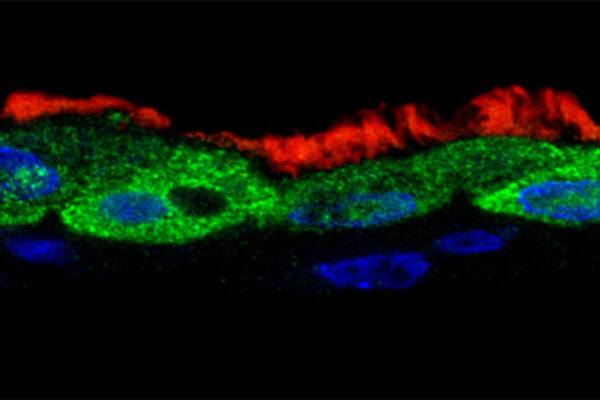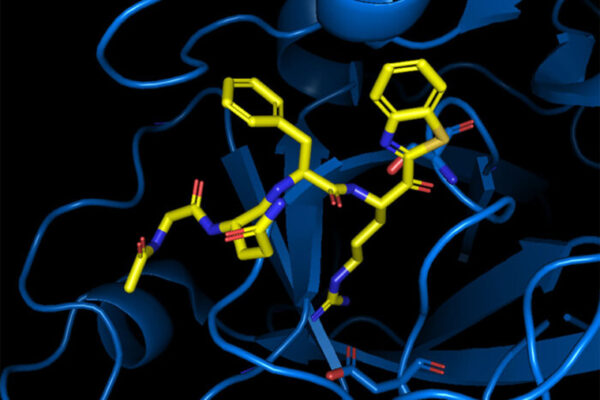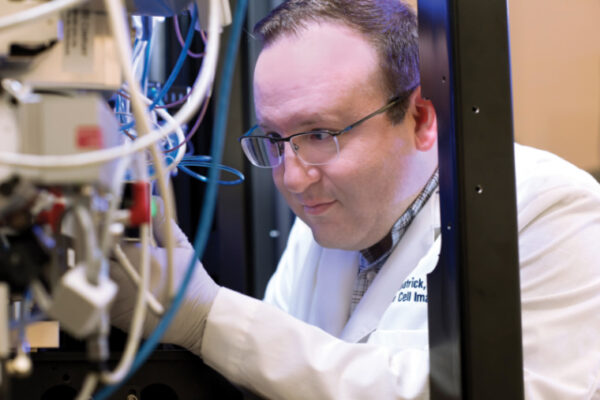Emotional aspects of chronic pain isolated in brain circuitry
Researchers at Washington University School of Medicine have identified circuitry in the brain that appears to link pain to negative emotional states. The findings, published in Nature Neuroscience, could lead to new treatments.
Colonna receives NIH grants
Marco Colonna, the Robert Rock Belliveau Professor of Pathology and Immunology at the School of Medicine, received a four-year $1.7 million grant from the National Institute of Diabetes and Digestive and Kidney Diseases of the National Institutes of Health (NIH) and a one-year $1.6 million grant from the National Institute On Aging of the NIH.
Hultgren to study allergy and infectious diseases
Scott J. Hultgren, the Helen L Stoever Professor of molecular microbiology at the School of Medicine, received a five-year $2.4 million grant from the National Institute of Allergy and Infectious Diseases of the National Institutes of Health (NIH).
Bloom receives NIH grant for extramural research programs
Adam Joseph Bloom, assistant professor of genetics and of anesthesiology at the School of Medicine, received a five-year $2.9 million grant from the National Institute of Neurological Disorders and Stroke of the National Institutes of Health (NIH).
Common respiratory virus manipulates immune genes to protect itself
Researchers at Washington University School of Medicine have figured out how respiratory syncytial virus (RSV) undermines the body’s defenses, a step toward understanding why the virus is capable of causing serious illness in vulnerable populations.
Antiviral compound blocks SARS-CoV-2 from entering cells
School of Medicine scientists have developed a compound that prevents SARS-CoV-2 and related coronaviruses from entering cells. The researchers are collaborating with the NIH to test the compound in animal models of COVID-19.
Cruz receives NIH fellowship award
Matthew A. Cruz, a predoctoral scholar in biochemistry and molecular biophysics and in the laboratory of Gregory Bowman at the School of Medicine, received a three-year $95,910 fellowship award from the National Institute of Allergy and Infectious Diseases of the National Institutes of Health (NIH).
Framework for evaluating AI-based medical imaging method outlined
As artificial intelligence becomes more incorporated into the medical field, rigorous evaluation of these methods is needed before they are introduced into clinical practice, a team led by Washington University researchers Abhinav Jha and Barry Siegel, MD, proposed.
Fitzpatrick receives grant for cutting-edge optical microscope
The National Institute of Mental Health has awarded James Fitzpatrick a $600,000 grant to purchase a cutting-edge optical microscope for the Washington University Center for Cellular Imaging, expanding super-resolution imaging to a broader range of wavelengths.
Alston receives NIH fellow transition award
Jhullian Jamille Alston, a predoctoral trainee in biochemistry and molecular biophysics and in the laboratories of Alex Holehouse and Andrea Soranno at the School of Medicine, received a predoctoral-to-postdoctoral fellow transition award from the National Cancer Institute of the National Institutes of Health (NIH).
View More Stories






